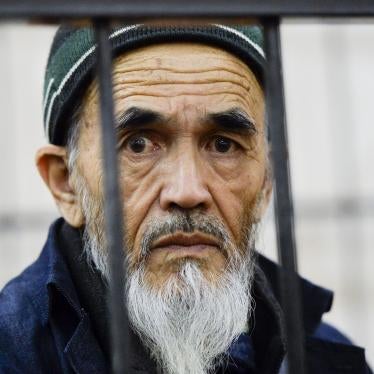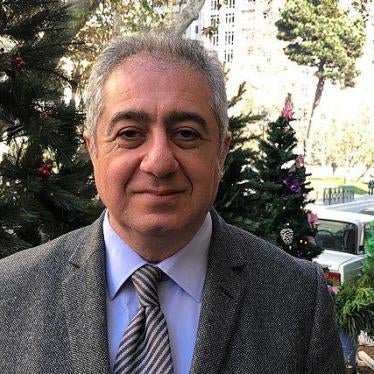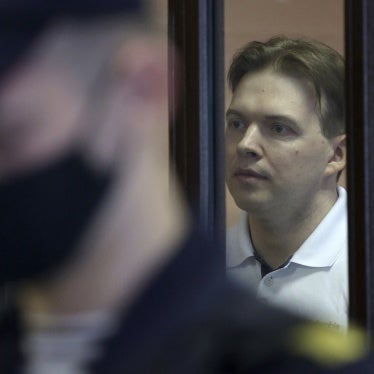Recent changes in the Serbian Ministry of Interior raise serious concerns about the new
government's commitment to human rights and accountability.
Two high-ranking police officials from the Milosevic era have been removed from office, but another official with a terrible record of human rights abuse has been promoted to an important position within the Ministry of Interior.
On January 30, Colonel Sreten Lukic was appointed as new chief of public security and deputy Serbian Interior Minister. Lukic was in charge of the regular uniformed police in Kosovo during 1998 and 1999, during which police under his command committed numerous crimes and abuses, including torture, indiscriminate attacks, forced expulsions, and extrajudicial executions.
"The appointment of Sreten Lukic raises serious doubts about the new Serbian government's commitment to police reform and to accountability for past abuses," said Holly Cartner, Executive Director of Human Rights Watch's Europe and Central Asia division. "People who should be investigated for their role in war crimes and other serious abuses are instead being rewarded."
At the same time, the newly appointed Serbian government dismissed two top officials, Lieutenant Generals Vlastimir Djordjevic and Obrad Stevanovic. Both Djordjevic and Stevanovic played key roles in Milosevic's repressive security apparatus, including having command of Serbian Ministry of Interior forces in Kosovo. Djordjevic, known informally as "Rodja" ("Cousin"), was head of the ministry's public security service, as well as an assistant to the minister. Stevanovic commanded the police department of the public security service.
Prior to this promotion, Lukic was an assistant chief of police in Belgrade. At the time he was stationed in Kosovo, he was the Chief of the Headquarters of the Ministry of Interior in Pristina. On numerous occasions, Lukic was presented by the ministry as its main interlocutor with foreigners in Kosovo, as well as the main contact person for the Kosovo Diplomatic Observer Mission (KDOM). Lukic's superior during 1998 and 1999, former Serbian Minister of the Interior Vlajko Stojiljkovic, was indicted for war crimes by the International Criminal Tribunal for the Former Yugoslavia (ICTY) in May 1999 for crimes against humanity committed in Kosovo.
Lukic's name also appeared in January 1999, after the killing of forty-five Kosovar Albanians in the village of Racak. According to the Washington Post of January 28, 1999, Western governments had intercepted conversations between "Serbian Interior Minister General Sreten Lukic" and Yugoslav Deputy Prime Minister Nikola Sainovic, who has also been indicted by the Yugoslav Tribunal. Western sources familiar with the intercepts claimed that the two officials ordered their forces to "go in heavy." In a series of conversations after the attack, Lukic and Sainovic allegedly discussed ways to cover up the massacre.
"The Serbian government's non-cooperation with the Hague Tribunal is bad enough," said Cartner. "But anyone interested in Serbia's democratic transition should be very concerned that people connected with abuses in Kosovo are now being promoted."







